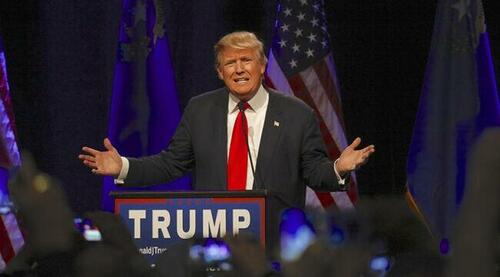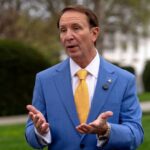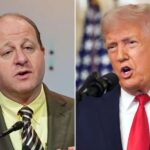
Authored by James Rickards via DailyReckoning.com,
It’s an election year. Interest rates are high relative to current inflation rates and are the highest they’ve been since 2006.
Do those two conditions have anything to do with each other? The Federal Reserve would say no but history would say yes.
On the one hand, the Federal Reserve has always maintained they are above politics. According to Fed propaganda, members of the board of governors check their politics at the door of the Fed boardroom and act solely on the basis of economic data and what’s best for the U.S. economy in terms of inflation and unemployment.
Of course, that’s nonsense. The Fed has always been highly political. It’s just that they’re very good at hiding it.
A Long History of Political Interference
In the late 1940s and early 1950s, the Fed and the White House operated under a strict understanding that the Fed would keep interest rates low in order to help finance the war effort in World War II.
President Truman tried to perpetuate that deal into the Korean War years (1950-1953), but the Fed rebelled. An understanding was reached that the Fed would return to independence, but politics were never completely off the table.
In 1972, Fed Chair Arthur Burns revved up the money supply to help Richard Nixon win reelection that year. It worked. Nixon won by one of the greatest landslides in U.S. history. It wasn’t just because of the Fed, but it played a part.
But the legacy was horrendous, including inflation from 1977–1981 that cut the value of the dollar in half in just five years. What’s the situation today?
Before getting back to the Fed’s influence over this year’s presidential election, I want to briefly discuss the latest election developments.
Trump Wins Record Victory in Iowa Caucus
After yesterday’s record victory in the Iowa caucus, it’s even more clear that Trump will be the 2024 Republican presidential nominee.
Trump won 51% of the vote, 30 points ahead of the runner-up, Ron DeSantis. The previous record in Iowa was a 13% margin, established back in 1988. In all, Trump won 98 of 99 Iowa counties. Donor class favorite Nikki Haley came in third with 19% of the vote.
To repeat, Trump will win the nomination, regardless of his legal challenges (some of which may be falling apart) and opposition from the Republican establishment.
Trump’s landslide win in Iowa comes amidst a nationwide campaign by Democrats to strip Trump from the ballot based on the allegation that he was an “insurrectionist” as a result of the Jan. 6, 2021, riot at the Capitol.
No Coincidence
The word “insurrection” was used by Nancy Pelosi the day after the riot, which provides strong proof that the entire insurrectionist plot was planned in advance by Democrats. It wasn’t just a coincidence that she invoked that specific term. It was carefully chosen.
Under Section 3 of the 14th Amendment to the U.S. Constitution, insurrectionists who took an oath as officers of the United States are barred from seeking federal office.
That was designed to prevent Confederates from becoming senators or representatives after the Civil War.
It’s rarely been used since the 1870s, and the last time it was used at all was a 1921 court case, which the government lost. The candidate seeking election won and was reelected for several terms.
So Section 3 is practically a dead letter. Never mind. The Democrats are bringing it back to keep Trump off the ballot.
Challenges are pending in about 20 states. If Trump is kicked off the ballot in even a few states, it could tip the election in favor of Biden. Smart move by Democrats, right? Not at all.
Boomerang!
It’s backfired in the Democrats’ faces. The two states where Trump was kicked off the ballot, Maine and Colorado, involve decisions headed to the U.S. Supreme Court that are likely to be overturned with Trump put back on the ballot.
The Maine and Colorado cases are so constitutionally dubious that you could even potentially see a 9-0 Supreme Court ruling against them.
Meanwhile, Trump’s standings in the polls go up every time the Democrats try another desperation play like this.
The 14th Amendment ploy confirms the Republicans’ worst suspicions about Democrat election-rigging and causes them to go on the offensive to stamp it out. Democrats are stoking so much outrage that they’re practically guaranteeing that Trump will be the nominee.
That’s not good news for Democrats because far from being easy to beat, Trump is ahead of Biden in the polls, especially in the swing states.
At the same time, Republicans are fully mobilizing to fight all kinds of election fraud including ballot harvesting, drop boxes, unverified mail-in ballots, rigged voting machines and much more.
Despite what you hear in the media, these were legitimate issues in the 2020 election. They may or may not have tipped the election to Biden in key swing states, but fraud and other voting irregularities certainly existed.
Now let’s get back to the Fed and its potential role in this year’s presidential election.
Stop Him!
To be sure, Fed Chair Jay Powell is a Republican — but he’s definitely a Bush Republican. That wing of the party despises Trump just as much as the Democrats, if not more in some cases. So you can count Powell as a Trump-basher, even though he’s a Republican.
Now, one of the top Democrat members of Congress, Ro Khanna, a radical progressive, has called upon Jay Powell to cut interest rates to help Biden win the election.
Khanna went so far as to say that if Powell doesn’t cut interest rates, “he may be the person most responsible for the possible return of Trump.”
Something similar happened ahead of the 2020 election, only then it was Bill Dudley, the former president of the New York Fed. Dudley suggested that the Fed should actively attempt to prevent Trump’s reelection by not cutting rates.
So much for the Fed not being political!
It Won’t Be About Politics After All
Powell is too smart to take the bait on this latest challenge, but he is listening. And the Fed might actually be right this time when it says it’s independent of politics.
The truth is, Powell may end up cutting interest rates in June or July anyway, regardless of politics. He won’t do this to help Biden or hurt Trump. He’ll do it because the U.S. economy will be headed for a severe recession by then and Powell will be getting the blame for the recession.
So Powell may be able to finesse his way through this political minefield. He’ll get to cut rates this summer (because of recession), keep the Democrats happy (because he cut rates) and keep the Republicans happy (because he caused a recession in the process).
It’s not that the Fed doesn’t care about politics. They do.
It’s simply the case that they’re good at keeping their heads down and leaving no fingerprints at the scene of the crime.
Authored by James Rickards via DailyReckoning.com,
It’s an election year. Interest rates are high relative to current inflation rates and are the highest they’ve been since 2006.
Do those two conditions have anything to do with each other? The Federal Reserve would say no but history would say yes.
On the one hand, the Federal Reserve has always maintained they are above politics. According to Fed propaganda, members of the board of governors check their politics at the door of the Fed boardroom and act solely on the basis of economic data and what’s best for the U.S. economy in terms of inflation and unemployment.
Of course, that’s nonsense. The Fed has always been highly political. It’s just that they’re very good at hiding it.
A Long History of Political Interference
In the late 1940s and early 1950s, the Fed and the White House operated under a strict understanding that the Fed would keep interest rates low in order to help finance the war effort in World War II.
President Truman tried to perpetuate that deal into the Korean War years (1950-1953), but the Fed rebelled. An understanding was reached that the Fed would return to independence, but politics were never completely off the table.
In 1972, Fed Chair Arthur Burns revved up the money supply to help Richard Nixon win reelection that year. It worked. Nixon won by one of the greatest landslides in U.S. history. It wasn’t just because of the Fed, but it played a part.
But the legacy was horrendous, including inflation from 1977–1981 that cut the value of the dollar in half in just five years. What’s the situation today?
Before getting back to the Fed’s influence over this year’s presidential election, I want to briefly discuss the latest election developments.
Trump Wins Record Victory in Iowa Caucus
After yesterday’s record victory in the Iowa caucus, it’s even more clear that Trump will be the 2024 Republican presidential nominee.
Trump won 51% of the vote, 30 points ahead of the runner-up, Ron DeSantis. The previous record in Iowa was a 13% margin, established back in 1988. In all, Trump won 98 of 99 Iowa counties. Donor class favorite Nikki Haley came in third with 19% of the vote.
To repeat, Trump will win the nomination, regardless of his legal challenges (some of which may be falling apart) and opposition from the Republican establishment.
Trump’s landslide win in Iowa comes amidst a nationwide campaign by Democrats to strip Trump from the ballot based on the allegation that he was an “insurrectionist” as a result of the Jan. 6, 2021, riot at the Capitol.
No Coincidence
The word “insurrection” was used by Nancy Pelosi the day after the riot, which provides strong proof that the entire insurrectionist plot was planned in advance by Democrats. It wasn’t just a coincidence that she invoked that specific term. It was carefully chosen.
Under Section 3 of the 14th Amendment to the U.S. Constitution, insurrectionists who took an oath as officers of the United States are barred from seeking federal office.
That was designed to prevent Confederates from becoming senators or representatives after the Civil War.
It’s rarely been used since the 1870s, and the last time it was used at all was a 1921 court case, which the government lost. The candidate seeking election won and was reelected for several terms.
So Section 3 is practically a dead letter. Never mind. The Democrats are bringing it back to keep Trump off the ballot.
Challenges are pending in about 20 states. If Trump is kicked off the ballot in even a few states, it could tip the election in favor of Biden. Smart move by Democrats, right? Not at all.
Boomerang!
It’s backfired in the Democrats’ faces. The two states where Trump was kicked off the ballot, Maine and Colorado, involve decisions headed to the U.S. Supreme Court that are likely to be overturned with Trump put back on the ballot.
The Maine and Colorado cases are so constitutionally dubious that you could even potentially see a 9-0 Supreme Court ruling against them.
Meanwhile, Trump’s standings in the polls go up every time the Democrats try another desperation play like this.
The 14th Amendment ploy confirms the Republicans’ worst suspicions about Democrat election-rigging and causes them to go on the offensive to stamp it out. Democrats are stoking so much outrage that they’re practically guaranteeing that Trump will be the nominee.
That’s not good news for Democrats because far from being easy to beat, Trump is ahead of Biden in the polls, especially in the swing states.
At the same time, Republicans are fully mobilizing to fight all kinds of election fraud including ballot harvesting, drop boxes, unverified mail-in ballots, rigged voting machines and much more.
Despite what you hear in the media, these were legitimate issues in the 2020 election. They may or may not have tipped the election to Biden in key swing states, but fraud and other voting irregularities certainly existed.
Now let’s get back to the Fed and its potential role in this year’s presidential election.
Stop Him!
To be sure, Fed Chair Jay Powell is a Republican — but he’s definitely a Bush Republican. That wing of the party despises Trump just as much as the Democrats, if not more in some cases. So you can count Powell as a Trump-basher, even though he’s a Republican.
Now, one of the top Democrat members of Congress, Ro Khanna, a radical progressive, has called upon Jay Powell to cut interest rates to help Biden win the election.
Khanna went so far as to say that if Powell doesn’t cut interest rates, “he may be the person most responsible for the possible return of Trump.”
Something similar happened ahead of the 2020 election, only then it was Bill Dudley, the former president of the New York Fed. Dudley suggested that the Fed should actively attempt to prevent Trump’s reelection by not cutting rates.
So much for the Fed not being political!
It Won’t Be About Politics After All
Powell is too smart to take the bait on this latest challenge, but he is listening. And the Fed might actually be right this time when it says it’s independent of politics.
The truth is, Powell may end up cutting interest rates in June or July anyway, regardless of politics. He won’t do this to help Biden or hurt Trump. He’ll do it because the U.S. economy will be headed for a severe recession by then and Powell will be getting the blame for the recession.
So Powell may be able to finesse his way through this political minefield. He’ll get to cut rates this summer (because of recession), keep the Democrats happy (because he cut rates) and keep the Republicans happy (because he caused a recession in the process).
It’s not that the Fed doesn’t care about politics. They do.
It’s simply the case that they’re good at keeping their heads down and leaving no fingerprints at the scene of the crime.
Loading…






